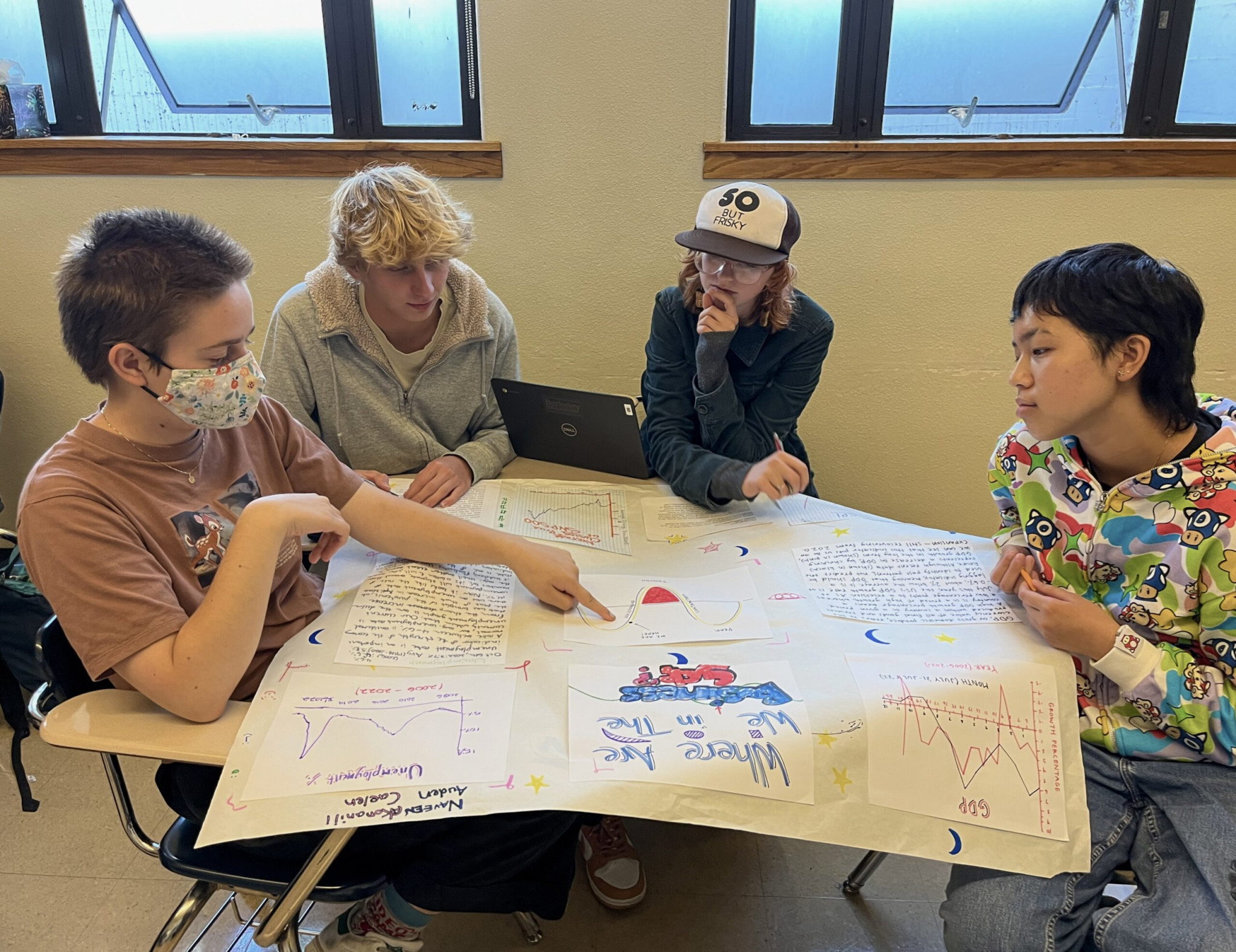“It’s convenient,” Stella Wellborn, a senior at Berkeley High School, said when describing group projects. Group projects are a tool for teachers to grade less and teach less. Instead of having to teach a number of topics to the whole class, small groups teach themselves. Then, instead of grading 30 assignments, they grade five. It’s an understandable tool for overworked teachers who are out of time. Like Wellborn said, it’s convenient. However, group projects are often unfair. Very subtly, all of the work is delegated to one student who is forced to complete the work of many. More often than not, this student is a woman. Group work is sexist, not by design, but in practice; it solidifies students’ roles based on their gender, a self-fulfilling prophecy which will continue in later life if it continues to be enforced.
“From very early on, boys and girls are learning these gender roles and practicing them, so in the future they’re going to build habits and think that this is normal,” Wellborn said. This dynamic has existed since early education and has never changed. The elementary education stereotypes of girls being hard working, “good” students, and boys being misbehaving, “bad” students were renamed as gender roles.
This dynamic continued into high school, where it transformed from a stereotype into the new normal. The purpose of school is socialization, teaching students how to behave and learn with others. However, it’s difficult to cooperate with others through collaborative work that enforces gender roles. Group work isn’t just unfair to the student who is forced to do all the work — often a woman — but also the students who will not learn because they are not given the incentive to do so. It’s easy to slack off when someone else is doing the work for you.
Collaboration that comes with group projects is a necessary skill, especially as a part of jobs in later life. Group work allows students to either be helped or be challenged by their peers, but often the same person is being challenged by their peers, and helping them at the same time. If group projects were perfect, the work would be divided evenly among students, and each would do their own part, with the help of their group mates. However, this isn’t the case and a lot of effort would be required to reform the dynamic where female students are forced to handle all of the work. It’s almost impossible to change a system that has been unconsciously accepted for so long.
Sadly, group projects will exist in different forms for the rest of our lives. They are a manifestation of a much larger and less escapable issue that has existed for centuries, without much change. While the bigger issue is concrete, behavior is malleable and with recognition of the problem, small changes can be made on the interpersonal level. Wellborn said that “people don’t understand what it’s like to be a woman in a group of all men.” Though they can’t grasp the discomfort of that dynamic, their recognition of the roles that accompany it could go a long way.





